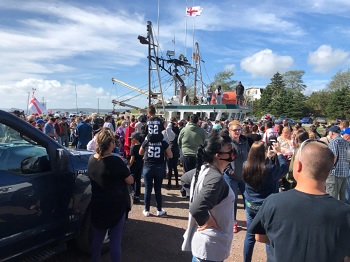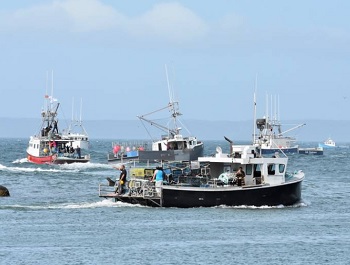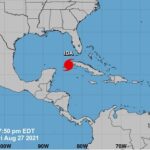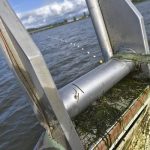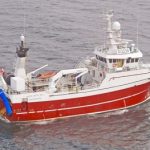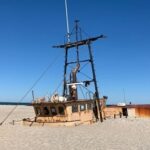Tag Archives: Nova Scotia
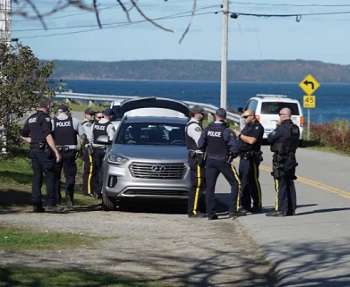
Indigenous Services Minister says Mi’kmaw fishermen in Nova Scotia being ‘let down’ by police
“We must also recognize that once again, as evidenced by the scenes of violence, Indigenous people have been let down by the police, those who are sworn to protect them,” he told a news conference in Ottawa this morning.,, Miller was joined by Fisheries Minister Bernadette Jordan, Crown-Indigenous Relations Minister Carolyn Bennett and Public Safety Minister Bill Blair.,, The Sipekne’katik fishery operates outside the federally mandated commercial season. Commercial fishermen say they worry about its impact on lobster conservation, an argument Sack is trying to discredit. Colin Sproul,,, “The real gulf between Chief Sack’s position and mine is this: we respect and support Indigenous fishery access rights, which was ratified by the Marshall decision, but we respect the entire decision,” >click to read< 16:02
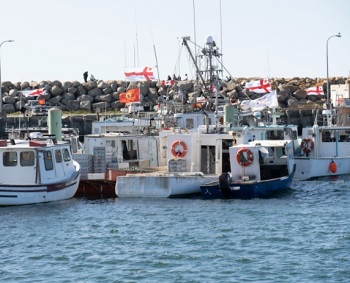
Cabinet ministers request emergency debate over Nova Scotia treaty dispute
Four cabinet ministers and the NDP have requested an emergency debate in the House of Commons over a treaty dispute between commercial fishermen and Mi’kmaq fishers. Fisheries and Oceans Minister Bernadette Jordan says parliamentarians should have the opportunity to voice their concerns about the violence that’s erupted over the dispute about Mi’kmaq treaty rights to fish for a “moderate living.” She and three other ministers requested the debate in a letter to the House Speaker last night. >click to read< 08:24
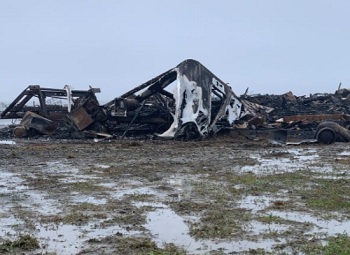
Nova Scotia lobster pound fire called suspicious – man in hospital with life-threatening injuries
A fire that police are calling suspicious destroyed a lobster pound in Middle West Pubnico, N.S., early Saturday. The blaze broke out at one of two facilities raided and vandalized by commercial fishermen in southwest Nova Scotia earlier this week protesting the “moderate livelihood” fishery launched by Sipekne’katik First Nation last month. Mi’kmaw fishers were storing their catches at the facilities. Tensions have been simmering for weeks in the province’s southwest, sparked by the launch of a moderate livelihood lobster fishery by the Sipekne’katik band outside the federally mandated commercial season — 21 years after the Supreme Court of Canada ruled in the case of Donald Marshall Jr. >click to read< 18:36
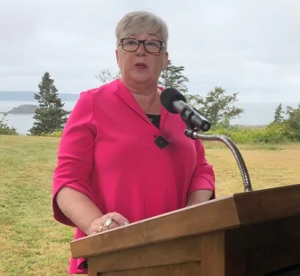
Lobster crisis. Is anyone at the helm?
Clearly, Fisheries Minister Bernadette Jordan doesn’t suffer from NIMBY syndrome (Not In My Backyard). How do we know? Because she’s allowed fisheries tensions to escalate,,, To be fair, the issue has simmered for decades. A 1999 Supreme Court of Canada decision reaffirmed the treaty rights of Nova Scotia’s Mi’kmaw communities to a moderate livelihood fishery. Tempers have flared occasionally over the years, and none of Jordan’s predecessors had the courage to create an industry where the moderate livelihood fishery happened without opposition from commercial fishers. The minister needs to show leadership before someone gets seriously hurt, or worse. >click to read< 12:19

A fire destroyed a lobster pound in Middle West Pubnico, N.S., early Saturday
The blaze follows two raids by commercial fishermen on lobster pounds in southwest Nova Scotia earlier this week protesting the “moderate livelihood” fishery launched by Sipekne’katik First Nation last month. Eel Brook Fire Chief Jonathan LeBlanc told CBC News that fire crews responded to a fire at a “large commercial structure” at 1065 Highway 335 at around midnight. RCMP spokesperson Sgt. Andrew Joyce confirmed that police were also at the scene. He said if the fire is deemed suspicious, police will investigate it alongside the fire marshal’s office. >click to read< 09:08
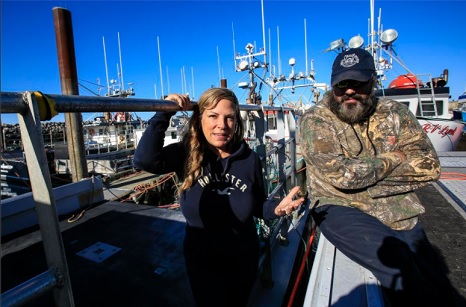
He had hoped to help end Nova Scotia fishery tensions, but now this union leader feels he just has to step down
It’s an ebb tide; in the afternoon sun in the Acadian fishing village of Meteghan, the Salt Shaker hangs low on the wharf. It seems appropriate. Comeau’s resignation has scuttled one of the few potential bright spots in a tumultuous week in southwestern Nova Scotia’s lobster fishery conflict; the hope that talks between him and Sipekne’katik chief, Mike Sack, might be the first steps towards a solution to the battle between Indigenous and non-Indigenous fishers.“ Now, the planned talks are dead, and the conflict that has torn the fishing community apart has no end in sight. >click to read< 08:18
 N.S. fishermen’s union head quits, says lobster dispute is ‘too much of a toll’ on his family – Joel Comeau says it’s no longer safe for him to be the president of the Maritime Fishermen’s Union Local 9 in Nova Scotia. Comeau stepped down Friday ahead of a planned meeting with Sipekne’katik First Nation Chief Mike Sack to discuss the increasingly tense dispute between commercial and Mi’kmaw lobster fishermen in the province. >click to read< 10:44
N.S. fishermen’s union head quits, says lobster dispute is ‘too much of a toll’ on his family – Joel Comeau says it’s no longer safe for him to be the president of the Maritime Fishermen’s Union Local 9 in Nova Scotia. Comeau stepped down Friday ahead of a planned meeting with Sipekne’katik First Nation Chief Mike Sack to discuss the increasingly tense dispute between commercial and Mi’kmaw lobster fishermen in the province. >click to read< 10:44

Trudeau defends federal response as threats escalate over Mi’kmaw fishery in Nova Scotia
“We are expecting the RCMP and police services to do their jobs and keep people safe,” Trudeau said. On Thursday, the chief of the Sipekne’katik First Nation urged Trudeau to step in and make sure those involved in the violence are prosecuted. The vice-president of a fishermen’s union in Nova Scotia has stepped down, citing fears for his family’s safety as threats from some non-Indigenous fishermen opposed to a self-regulated Mi’kmaw lobster fishery continue to escalate. Joel Comeau, a former member of the Local 9 of the Maritime Fishermen’s Union, was supposed to meet with Sack on Friday morning but abruptly cancelled the meeting. Comeau said he’s received “a lot of flak from my people and a lot of intimidation” over his willingness to work with Sack to find a way forward. “This community is out of hand. This community feels unsafe,” said Comeau. >click to read< 16:00

Canada’s courts and governments have themselves to blame for the lobster fishery dispute
Imagine the reaction you’d have if you, a Canadian worker, in any field, were told by the courts and the government that you could earn only a “moderate livelihood.” Imagine that on top of this, you’re told that there is no definition of “moderate livelihood”, that it’ll be worked out over time. Your howls of protest would be loud and intense, and rightly so. Yet this is precisely what happened for the Mi’kmaq and Maliseet in Eastern Canada when the Supreme Court of Canada made its 1999 decision in the case of R. v. Marshall, ruling that the First Nations had a treaty right to fish for commercial purposes, but with a “moderate livelihood” restriction on that right. The Marshall ruling,,, >click to read< 16:12
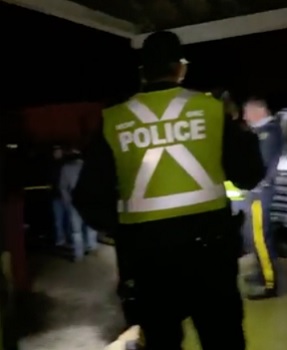
Angry mob trap Mi’kmaw fishermen at a lobster pound in southwestern Nova Scotia
An angry mob of non-Indigenous lobster fishermen trapped two Mi’kmaw fishermen inside a lobster pound in southwestern Nova Scotia late Tuesday evening. According to Jason Marr, a Mi’kmaw lobster fisherman with the Sipekne’katik First Nation, N.S., the angry crowd also set fire to his van and threw rocks at the facility’s windows in West Pubnico while he and another fisherman, Randy Sack, were trapped inside. Marr said he fled to the lobster pound in West Pubnico Tuesday evening when he heard that a mob of non-Indigenous fishermen were heading to the wharf,,, >click to read< 09:30
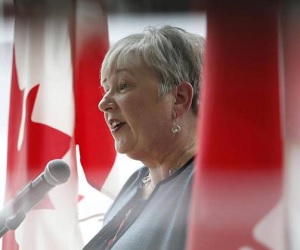
Trudeau government rejects lobster quota system for commercial inshore fleet
Fisheries and Oceans Minister Bernadette Jordan issued a statement Friday after meeting with commercial fishermen the day before. “As confirmed in that meeting, there is no plan to move to a quota system for the commercial lobster fishery and it is not being considered,” Jordan said. For decades, conservation in the billion-dollar commercial lobster fishery has been maintained by limiting the number of licence holders and traps. Stocks throughout Nova Scotia lobster fishing areas are healthy. Three Mikmaw parliamentarians have proposed the creation of an optional Atlantic First Nations fisheries authority to administer an Indigenous fishery. >click to read< 19:13
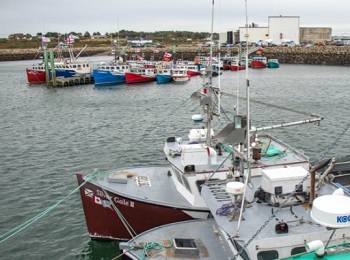
The lobster catch in St. Marys Bay is down, but there’s little consensus on why
DFO has released data showing a decrease in the amount of lobster caught between 2016 and 2018 in St. Marys Bay, the body of water at the centre of a disputed Mi’kmaw fishery in southwest Nova Scotia. Lobster landings in St. Marys Bay were 1,691 metric tonnes in the 2016-2017 season with a record high value of $25 million, according to data released to CBC News by the department. Two years later, landings were down 46 per cent by weight and 32 per cent by value. >click to read< 08:19
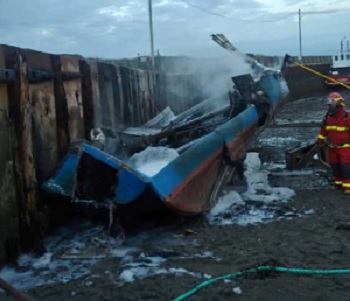
Mi’kmaw fishing vessel destroyed in suspicious fire at N.S. wharf
A suspicious fire at a southwestern Nova Scotia wharf has destroyed a boat belonging to a Mi’kmaw fisherman, casting doubt on his ability to join the upcoming commercial lobster season. Robert Syliboy woke up to a call from a friend early Monday, asking if he had a boat tied up at the Comeauville wharf in Digby County. When Syliboy replied that he did, the friend told him the vessel might be in flames. Photos soon confirmed the 12-metre boat was indeed Syliboy’s. >click to read< 18:53
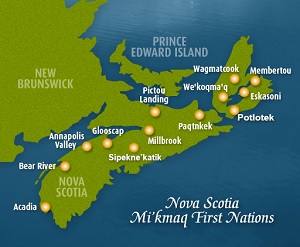
Lobster Fishery at a crossroads
According to the book Truth and Conviction: Donald Marshall Jr. and the Mi’kmaq Quest for Justice, when Marshall was asked to produce his fishing licence he replied, “I don’t need a licence. I have the 1752 Treaty.” Using the lifetime pension he received as compensation from the wrongful conviction, Marshall decided to fight for his ancestral Treaty rights to hunt and fish, and eventually, after an expensive and lengthy court battle, in 1999 the Supreme Court of Canada ruled in his favour. Marshall was acquitted on all the fishing charges, and the landmark ruling affirmed that the 1760 and 1761 Peace and Friendship Treaties with the British and Section 35 of the 1982 Constitution Act gave the Mi’kmaq, Maliseet, and Peskotomuhkati people, a total of 34 First Nations in the Maritime provinces and the Gaspé region of Quebec, the right to hunt, fish and gather in pursuit of a “moderate livelihood” from the resources of the land and waters. A subsequent Supreme Court clarification, known as Marshall II, stated that conservation-based regulations would still apply. >click to read< 08:59
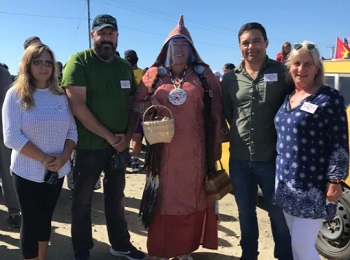
Peaceful protest, peace offering in disputed First Nations lobster fishery
There were peaceful protests Friday in Nova Scotia by commercial fishermen, following a symbolic gesture of peace the day before between some commercial fishermen and the First Nations band at the centre of a disputed lobster fishery. Gordon Beaton, the president of Local 4 of the Maritime Fishermen’s Union, said fishermen are worried where the fishery is headed.,, “We don’t argue the treaty,” said Beaton. “We’re not arguing the fishing rights that they have. They have a right to First Nations fishery, but we want the right to be executed in a way that’s sustainable for everybody.” >click to read< 16:09
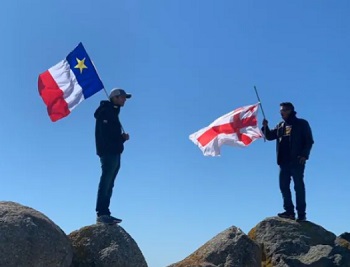
As a fishing dispute in N.S. sees no swift end, ‘Peaceful and mutually beneficial coexistence is possible because it was once the norm here’
The fishery has always been essential to the inhabitants of what is known today as Nova Scotia, but a conflict has erupted over who benefits from the fishery, how much, and when. Ineffective governments have exacerbated the situation, no doubt, but historical amnesia has equally been a great abetter of ill feeling and a sower of confusion. Looking back might light part of the way toward a solution. We should begin with an observation that might seem counterintuitive in the present climate: contact and colonization were not at once and always an unmitigated disaster. >click to read< 11:44

Mi’kmaq push for legal lobster sales for non-Indigenous buyers
The Mi’kmaw community in Nova Scotia that recently launched its first self-regulated lobster fishery is now pushing the province to change laws restricting non-Indigenous fish buyers from doing business with the First Nation. Sipekne’katik First Nation introduced its Trade and Transport regulations today for Mi’kmaw fishers to legally sell seafood harvested under the right-based fishery to Mi’kmaw and non-Indigenous consumers and seafood wholesalers.,, While Sipekne’katik is willing to work with seafood buyers from the existing commercial fishing industry, Sack said, until an agreement is reached with governments, there are few places for Mi’kmaq to sell their lobster. >click to read< 19:59
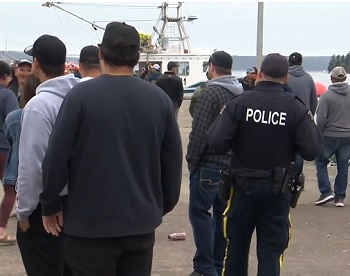
Sipekne’katik First Nation to meet with Minister Bernadette Jordan next week
After multiple calls to meet with the Department of Fisheries and Oceans, members of the Sipekne’katik First Nation will sit down with Fisheries Minister Bernadette Jordan next week. Chief Michael Sack tells Global News the details of the meeting, to be held amid an ongoing dispute between Indigenous and non-Indigenous fishers, are still in the works, but he says it will be held virtually as Jordan is returning from Ottawa and will need to self-isolate for 14 days upon her arrival. video, >click to read< 19:11
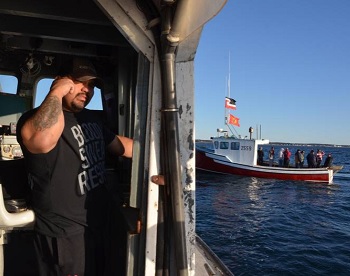
Federal inaction drives lobster feud
A Coast Guard cutter and two helicopters (one RCMP, one DFO) provided little more than backdrop scenery to the boiling tensions on the Acadian shore Monday. Both the First Nations encamped behind a barricade at the Saulnierville Wharf and the predominantly Acadian local fishermen with their own roadblock at the Meteghan wharf 14 kilometres away called on the federal authorities to uphold the law. But whose law do they uphold? Successive federal fisheries ministers have kicked the issue down the election cycle by providing commercial licenses to First Nations bands without negotiating the Supreme Court of Canada acknowledged right of individual Mi’kmaq to make a moderate livelihood off of natural resources. The vacuum left by their inaction is being filled with threats, flares and rubber bullets. >click to read< 10:29
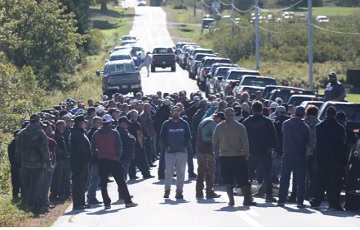
Nova Scotia Commercial fishermen turn focus to alleged buyer in Mi’kmaw lobster dispute
Commercial fishermen in southwestern Nova Scotia say they are taking a different approach on Monday in the dispute around the new self-regulated lobster fishery launched by Sipekne’katik First Nation. After several days of hauling in traps belonging to the Mi’kmaw fishers, the commercial fishermen now say they are turning their attention toward those who they believe are buying Mi’kmaw-harvested lobster. “It’s with the federal government and it’s with people from within our own community who are facilitating the buying of illegal fishery products.” A large crowd gathered in protest Monday morning in front of an alleged buyer’s home in the community of Comeauville. >click to read< 13:49
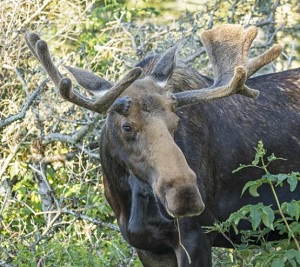
Fishing dispute could close Cape Breton moose hunt
“Our people are angry,” said Rod Googoo, the chief of the Waycobah First Nation,,, Googoo was among hundreds of Mi’kmaq who spent part of the weekend in Saulnierville, a small fishing port located between Digby and Yarmouth on the province’s southwestern coast. They were there to support to fishers from central Nova Scotia’s Sipekne’katik First Nation who took to the water last week after being issued lobster fishing licenses by their own band.,, The Waycobah chief, who is a key part of the Assembly of Nova Scotia Mi’kmaw Chiefs’ lands, wildlife and forestry involvement, went to social media with the suggestion that his people shut down this year’s moose hunt in Cape Breton. The idea was met with overwhelming support and encouragement. >click to read< 12:27
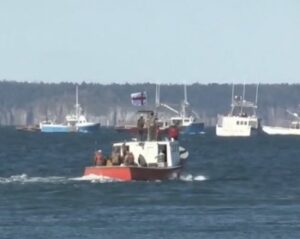
Nova Scotia Indigenous fishermen not backing down after traps removed
Indigenous and non-Indigenous fishermen have been locked in an ongoing dispute. Both sides say things were heated on the water on Sunday. “A Mi’kmaw fishermen went out to check his gear, and he was swarmed by commercial fishing vessels that were cutting him off and hauling their gear, stealing their traps – preventing our people from fishing,” says Sipekne’Katik First Nation Chief Michael Sack. “One of our boats was chased by a First Nations vessel, and they made an attempt to ram him and to board him,” says Sproul. “He immediately turned around and retreated here to Meteghan.” Sack says, while having their gear hauled up by commercial fishermen slows their operation a bit, they are in it for the long haul – with no plans to stop fishing. >video, click to read< 08:35
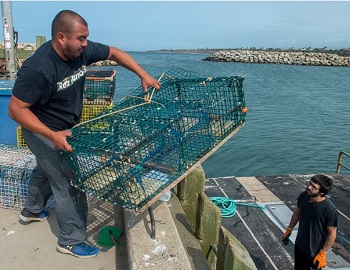
Fishermen say they are removing Indigenous lobster traps in western Nova Scotia
Non-Indigenous fishermen say they are in the process of removing lobster traps set by fishermen from the Sipekne’katik First Nation in waters off western Nova Scotia. Colin Sproul, of the Fundy Inshore Fishermen’s Association, says a large number of boats are in St. Marys Bay and intend to remove the traps and take them to the wharf in Meteghan, N.S. Sproul says the fishermen are taking action on what they believe is an illegal out-of-season fishery because the Department of Fisheries and Oceans has refused to do so. But the Sipekne’katik First Nation says its people have a treaty right to fish at any time. ,, A clarification was issued by the court, which said the treaty right was subject to federal regulation. >click to read< 13:15
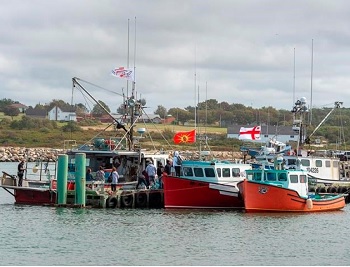
Lobster protests: Nova Scotia RCMP arrest two at wharf in Weymouth
RCMP say two people were arrested Friday and accused of assault at a wharf in western Nova Scotia, where there were reports of ugly confrontations over a First Nation’s commercial lobster fishing operation. Some non-Indigenous fishermen say they believe the Indigenous business is illegal because the regular fishing season is now closed, but the Sipekne’katik First Nation says their people have a treaty right to fish at any time. The Mounties say no one was injured at the wharf in Weymouth, and the two suspects were arrested and escorted from the scene. >click to read< 15:16
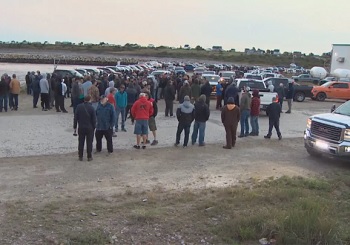
A peaceful protest by commercial fishermen turned confrontational in Nova Scotia
There was yelling and cursing between Indigenous and non-Indigenous fishermen, but there were no injuries. The commercial fishermen are protesting what they claim is an illegal lobster fishery in St. Marys Bay in southwestern Nova Scotia. They say a communal First Nations lobster fishery, where the sale of the catch is prohibited, is being used as a cloak for a large-scale commercial fishery. The Mi’kmaq reject that claim, arguing their right to fish for a moderate livelihood was affirmed by the Supreme Court of Canada in 1999. >click to read< 09:37

Mi’kmaq planning their own moderate livelihood fishery outside DFO seasons
Canada’s Minister of Fisheries and Oceans is downplaying plans by Nova Scotia Mi’kmaq to create their own moderate livelihood fishery, characterizing the move as part of ongoing negotiations to implement a 21-year-old Supreme Court ruling. “Right now we are working with the First Nations communities to determine what a moderate livelihood fishery looks like. We’re continuing to have those meetings with them,”,, The Trudeau government has managed to get moderate livelihood deals with three bands; one in Quebec and two in New Brunswick. >click to read< 10:55
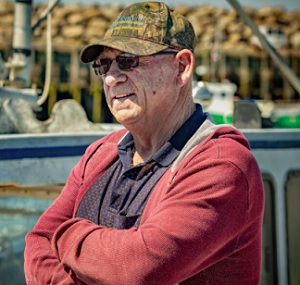
Mi’kmaw lobster harvesters feeling harassed for practising moderate livelihood fishery
Mi’kmaw lobster harvesters in southwestern Nova Scotia say they feel harassed by non-Indigenous harvesters for practicing their treaty right to earning a moderate livelihood by setting lobster traps in St. Mary’s Bay. The harvesters say the harassment isn’t only coming from non-Indigenous harvesters. They’ve also had their gear seized by officers with the Department of Fisheries and Oceans. >click to read< 08:14







